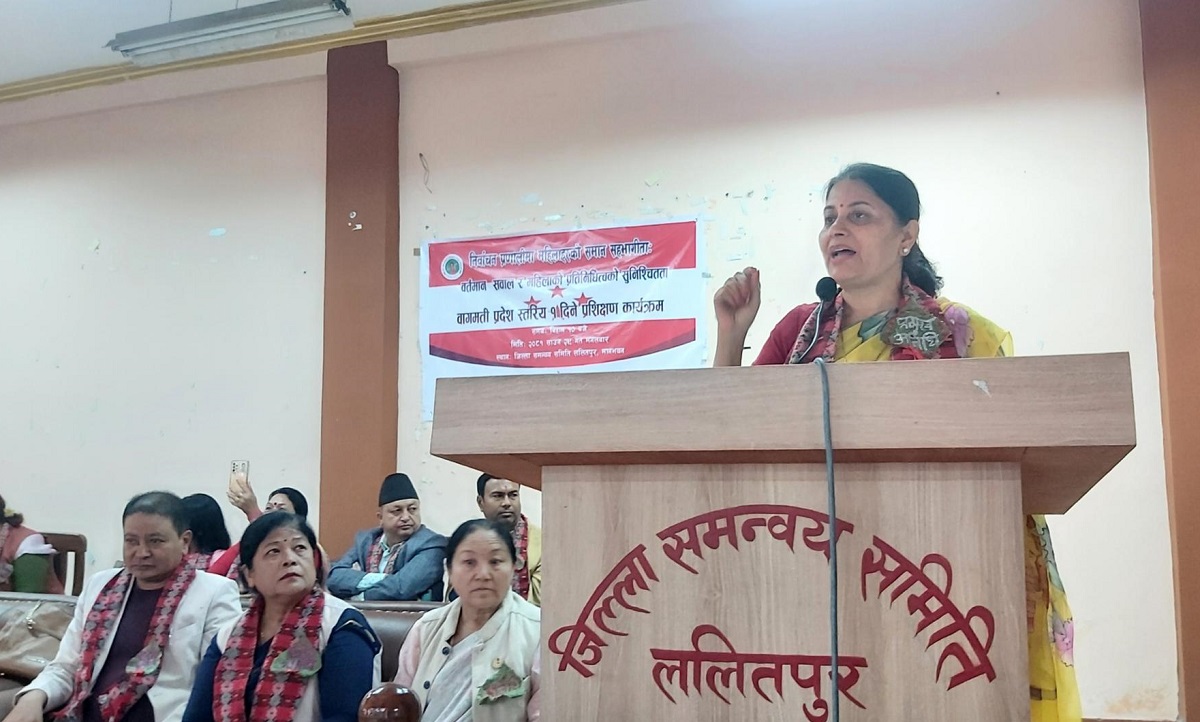LALITPUR: Mahalaxmi Upadhyay (Dina), Joint General Secretary of the Nepali Congress, has called for a constitutional guarantee of 50 percent women candidates in the direct electoral system.
Addressing a daylong Bagmati Province-level orientation on ‘Equal Participation of Women in Electoral Systems: Current Issues and Guarantees of Women Representation,’ Upadhyay emphasized that achieving 50 percent female participation in each state’s apparatus cannot be accomplished solely through the proportional electoral system.
“The Nepali Congress has played a pivotal role in advancing women in politics. However, the party has long awaited 50 percent female representation at decision-making levels. Dwarika Devi Thakurani, the first female minister in South Asia, was from the Nepali Congress. Women played a significant role in the 2006 people’s movement, and now it’s time to ensure that 50 percent of candidates from each party in the first-past-the-post electoral system are women,” she said.
Despite their significant contributions to political movements, women’s rights have not been adequately institutionalized, and their presence in decision-making roles remains minimal, according to Upadhyay.
She noted that issues such as women’s rights to property and equal lineage have not been fully addressed due to various structural and social constraints.
Upadhyay also pointed out that women’s political representation, which stood at 34 percent in the 2008 Constituent Assembly, has diminished over time due to the rise of electoral alliances.
Pushpa Bhusal, a central member of the Nepali Congress, echoed the call for unity among women to secure their place at all levels of the state.
“Women must be active in their parties with a people-friendly approach and goal. Leadership cannot be achieved solely through physical infrastructure; issues of economic equality and educational status must also be addressed,” she said.
Similarly, Sarita Prasain, a lawmaker and central committee member of the Nepali Congress, stressed the ongoing struggle for women’s representation.
“Despite constitutional and legal guarantees, women are still underrepresented in the cabinet. It is crucial for women to build their capabilities and create an environment of mutual respect,” she added.
Hari Prabha Khadgi, Social Development Minister of Bagmati Province, highlighted the need for 50 percent women representation, not just 33 percent.
“Women are powerful and need to be economically and socially empowered to establish leadership roles. Programs like this are essential for evaluating and promoting women’s political participation,” she stated.









Comment